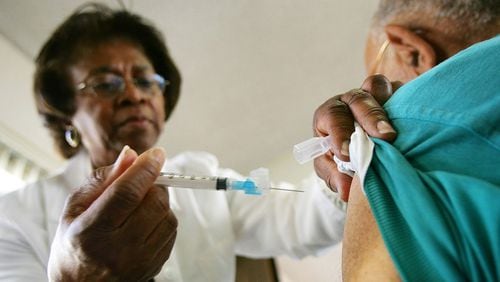Influenza or ‘the flu’ is a contagious respiratory illness that infects the nose, throat and lungs.
The flu vaccine or ‘flu-shot’ is the best way to protect against getting the flu or spreading it to others.
According to Susan Rehm, M.D., of Cleveland Clinic the flu vaccine has been around for years, but there are still a lot of myths surrounding its safety and effectiveness.
“Some of the most common ones include, ‘I don’t get the flu, so I don’t need the flu vaccine,’ said Dr. Rehm. “The reason that that is a very dangerous myth is that even people who have no underlying illness, who seem perfectly healthy, can die from the flu or be hospitalized.”
Dr. Rehm said another common myth is that the flu vaccine will give people the flu, which she says simply is not true, because the vaccine does not contain a live virus.
She said sometimes people think they are ill from the vaccine, not only because they’re a little sore in the area of the injection site afterwards, but also because it triggers the immune system to ramp up.
When that happens, it can make folks feel tired and achy, which can be mistaken for flu-like symptoms.
Dr. Rehm said it’s important to remember that the vaccine isn’t fool-proof. Some years it’s more effective than others, but she said any protection is better than none.
For those who do wind up getting sick during flu season after getting a flu shot, Dr. Rehm said it might be easy to think it’s the flu, when in fact, another respiratory illness may be to blame.
“If you’re getting flu vaccine and there are non-influenza viruses circulating in the community, and you get sick with one of those viruses, then the natural assumption is ‘oh I got this from the vaccine,’ when in reality they were two unrelated events,” said Dr. Rehm.
Dr. Rehm said that it’s best to get a flu shot before the start of ‘flu season,’ which usually begins sometime in October, but that folks should get it the first chance they have, even if it’s later in the year.
About the Author






